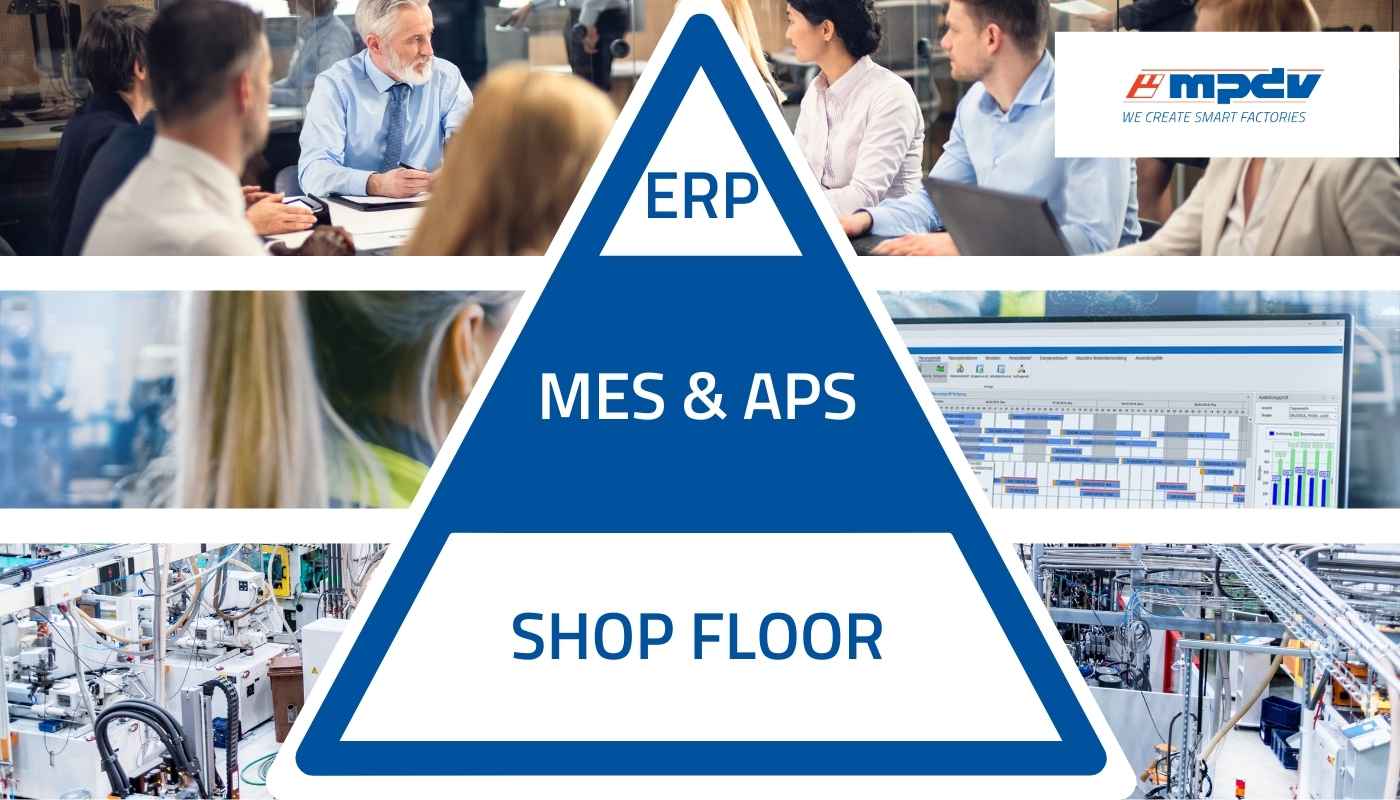
Find out how you can digitalize your production
with solutions from MPDV!
Advanced Planning and Scheduling System / APS – Smart Factory Glossary
An Advanced Planning and Scheduling System (APS) is software supporting production companies in their efforts to monitor and plan production thereby integrating all resources.
The software incorporates the complete supply chain in the planning process – ranging from the provision of raw materials to the manufacturing process and intralogistics. APS simplifies production planning considerably and helps optimize the value-added chain of your company. For this to work, you require complete and precise data.
How does an Advanced Planning and Scheduling system work?
An APS uses mathematical optimization models to obtain maximum efficiency with the current planning data. In its calculations, the software also integrates restrictions, such as blocked stock, machine downtimes or staff shortages. Using this data, an Advanced Planning and Scheduling system generates exact plans for the assignment of machines, operations, or personnel. Resources of all kinds will be used efficiently: from personnel to material. Additionally, an Advanced Planning and Scheduling system can simulate future planning scenarios. This way, production controlling is in the position to identify potential problems early on and take countermeasures.
What are the differences between APS and an MES or ERP system?
A Manufacturing Execution System (MES) collects production data in real time and processes and visualizes this information. An MES helps you keep an overview of your production and makes even complex processes transparent. Machine operators or people responsible for production can identify potential for optimization and deduce improvements. They can, for example, shorten lead times, reduce scrap rates, or ensure traceability. The VDI guideline 5600 describes in detail the tasks of an MES and its fields of application. According to this definition, production planning is one of the core tasks of an MES.
Even though by definition many scheduling functions are part of an MES, they can also be outsourced to an Advanced Planning and Scheduling system. In this case, the APS is responsible for production planning. To achieve optimal planning results, the APS system also uses production data from the MES. Depending on the provider, APS can be part of a Manufacturing Execution System or offered as a stand-alone software solution.

MES and APS pertain to the production management level; Enterprise Resource Planning systems (ERP) are higher-level systems and part of the management level. ERP systems support all business processes of a company. Their main task is to support processes consistently and to ensure the exchange of information through standardized components and interfaces.
The shop floor including all workplaces, machines, equipment, and production processes is part of the production level.
What are the benefits of an APS system?
An Advanced Planning and Scheduling system can be used to plan single operations or complex production orders in a reliable and flexible manner. If the software also uses artificial intelligence methods (AI), such as reinforcement learning, even a variety of operations in complex planning scenarios can be assigned perfectly to resources. The Advanced Planning and Scheduling system FEDRA uses such methods but that's far from being standard with every production planning system. By means of digitalized production planning, companies can improve on-time delivery and predict exact delivery dates. Also, labor utilization is optimized, and setup times are minimized.
APS software in use
The video presents the Advanced Planning and Scheduling system FEDRA and illustrates the benefits of production planning with AI.
Sources
- Schleupner, Linus/MES D.A.CH Verband e. V.: Fachlexikon MES & Industrie 4.0, volume 5, Berlin Offenbach, Deutschland: VDE Verlag GmbH, 2022, pages 8–9
- Vahrenkamp, Richard/Siepermann, Christoph Enterprise-Resource-Planning-System, in: Gabler Wirtschaftslexikon, 19 February 2018, https://wirtschaftslexikon.gabler.de/definition/enterprise-resource-planning-system-51587/version-274748 (called on February 2, 2023).
- MPDV Mikrolab GmbH: Ihr Kompass auf dem Weg zur Smart Factory [Broschüre], Mosbach, 2021
Would you like more information? We are happy to help.
Just fill in the form below. We will take care of your inquiry promptly.
